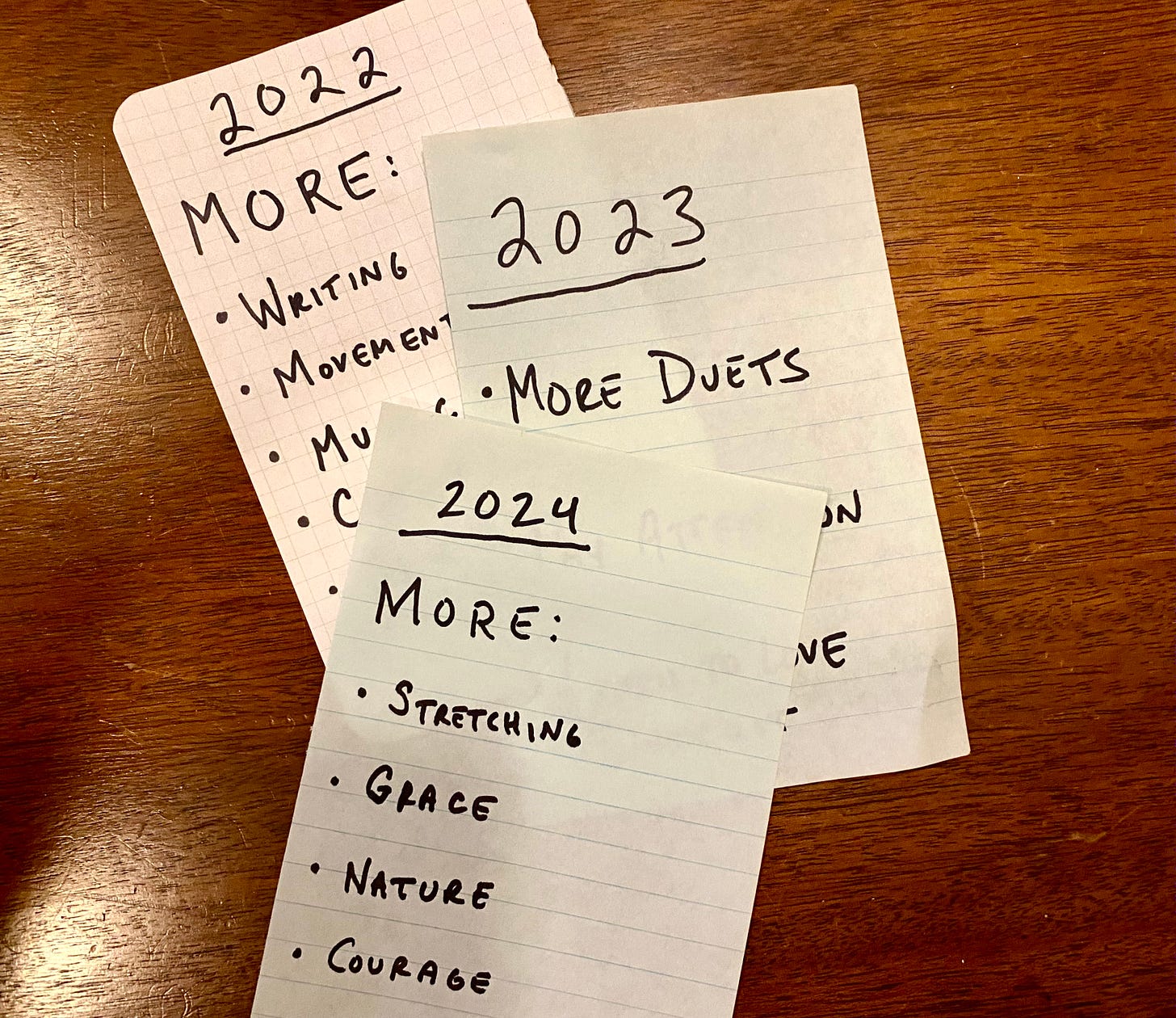When I was 24 or 25 I went through a brief phase of standing against the concept of New Year’s resolutions. “Don’t make New Year’s resolutions, you’re probably fine,” I remember writing on several different platforms. While I still think the general idea was correct, that was probably a very annoying way to be talked to by someone who had not lived an especially long time and who did not (yet) know what it was to be depressed or anxious or unhappy in his own skin.
So I’m back to making resolutions, because while I hate the idea that I should be down on myself for failing to optimize my mind or body, I do find comfort in participating in a ritual that acknowledges the close of one season of life and the beginning of another, and I find a sense of community in the fact that so many people are doing the same.
What I’ve learned, though, is that setting resolutions that include measurable benchmarks is setting myself up for failure. When I fall short or break a streak of something I meant to do every single day, it feels like I have to punt on the year. Instead, I’ve figured out that for me the only framework that makes any sense is one that is neither measurable nor negative: most years, I write the word MORE at the top of a small piece of paper, and fill in a few things I’d like to do more of in the coming year.
It seems simple because it is. And refusing to resolve on the assumed terms that there’s something wrong with me or how I live has been a big help in making the exercise feel worthwhile, useful. I aim myself in a direction rather than treating myself like an employee who must be monitored and measured. The result is that I do find myself making time for a few things that make me feel physically, mentally, or spiritually good. And I don’t have to track what I’m doing; at most, I glance at my desk corkboard and see my MORE list pinned there and remember that I should try to do xyz thing that week—not because I “resolved” to, but because it’s something that I know I will feel better having done.
Consider this your invitation to reject the practice of coded self-loathing. It’s easy to be against things; it can be harder to know what you are for. Like many other truths this one can start within and then be turned outward. (The turning outward often seems to be what life is for.) It’s okay to open yourself to possibility, to self-knowledge, to abundance, without submitting to litmus tests of human frailty.
Goethe’s last words, at least apocryphally, were: “More light!” I can think of no finer words with which to ring in a new year,1 as the days slowly grow longer and brighter and we participate once more in the ritual of welcoming the changes and challenges of this new season in our lives.
Thanks, as always, for reading. I’ll talk to you next time.
-Chuck
PS - If you liked what you read here, why not subscribe and get this newsletter delivered to your inbox each week? It’s free and always will be, although there is a voluntary paid subscription option if you’d like to support Tabs Open that way.
Especially at the close of a year as dark as this one. I don’t think I knew I could be this angry, this horrified, much less for months at a time.






More grace! Always. Have a wonderful new year, Chuck.